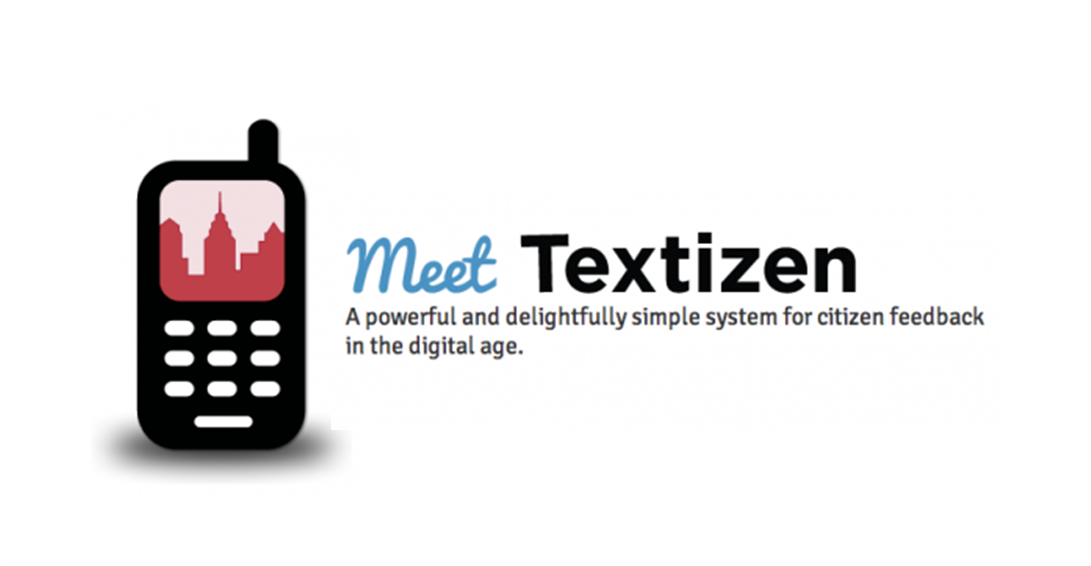Originally posted at OpenSource.
By Michelle Lee.
Last year, our team of Code for America Fellows received a call to action. Our partners at the City of Philadelphia needed a way to reach out to citizens left out of traditional public engagement. So we built a tool that used the simple power of text messaging to help government and citizens connect. We called it Textizen.
Before we even launched, word spread to cities across the country, each asking how they could use Textizen too. Small, rural communities needed to reach residents who couldn’t drive hours to meetings at the county seat. Large, urban communities needed to connect with constantly-moving residents. We realized that Textizen’s simple, nimble platform could be useful in any city, any sector. Fueled by this enthusiasm and support from the Knight News Challenge: Mobile, we set out to make Textizen available to all.
In January, we rolled up our sleeves and joined Code for America’s first ever Incubator. A remarkable group of mentors advised us as we filed for incorporation, established a financial plan, and navigated contracts and procurement. For a bunch of geeks who love the thrill of writing and deploying software, this was a whole new domain. But we quickly realized its power to expand our mission and impact.
One of Code for America’s core beliefs is that government can become more open, efficient, and engaging by borrowing tools and techniques from Silicon Valley. In the past five years, it’s become easier and faster to build high-quality software. Why? Startups no longer have to build everything from scratch. Instead, they tap an explosion of services that reduce the effort required for tasks from setting up servers to building their look and feel. By taking advantage of reusable basics, startups can move more quickly to creativity and invention.
Can government take advantage of the same paradigm? To do so, it needs a robust array of technology choices that are seamless and powerful, user-friendly and elegant. Code for America’s Incubator is making sure these choices are here to stay by providing a business, legal, and finance boot camp specifically for civic startups.
More than 10,000 citizen responses and one Incubator program later, we’ve helped cities such as Denton, Texas promote economic development in its creative sector; Chicago Public Schools collect broad input for a 10-year facilities master plan; and Oakland, Calif. establish a citizen-generated baseline for new government transparency efforts.
What does the future of civic engagement look like? At Textizen, we’re making our texts more inclusive (for instance, en español), our data analysis more powerful, and our platform more capable of even richer input and feedback. And that’s just the next few months.
Follow us on our new Textizen blog as we transform civic engagement, one quick message at a time.
* * *

This work is licensed under a Creative Commons Attribution-NonCommercial-NoDerivs 3.0 United States License.
Originally posted on OpenSource & the Code for America blog.
Reposted under Creative Commons Attribution Share License.





